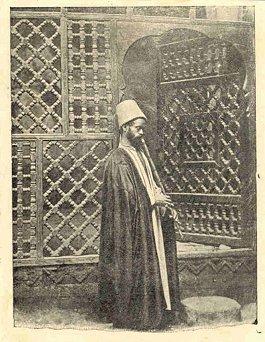Political: Constructing “Moderate Muslims” - Let Muslims be Muslims
During my student politics days, when the students got a little tired of rhetoric from different camps, one student came up with an interesting message for all – “No Slogans… Wisdom please”. As I indefinitely hear labels and new labels for Muslims, I wish I can say that to them. The latest slogan or label that is being promoted and championed by politicians, journalists, orientalists, apologists and secularcrats has been “Moderate Muslim”. In fact they seem to have launched their campaign to create “Moderate Muslims”.
In the post-Sepoy mutiny era in the 19th century, the British colonialists embarked on a campaign to construct the “obedient” Muslims. At the end of the World War I, the Allies tried to construct the “Caliphateless” Muslims. At the end of World War II, the colonialists tried to construct the “Independent” Muslims. During the Soviet-Afghan war, US and UK tried to construct the “Jihadist” or “Anti-Russian” Muslims. With the discovery of oil in middle east, the western powers tried to create the “friendly” Muslims. In the post September 11 era, in order to counter militant wahabbis, salafis and jihadists, there is a campaign to construct “Moderate Muslims”.
It really intrigues me as to how there is always some campaign to construct some kind of Muslims. It is not some kind of an evolutionary process like how music genres evolves through time. Nor is it similar to how there is a never ending effort to create the fastest formula 1 car or the most chic designed car. Indeed there are very few such campaigns in other areas like how there is always a campaign to create some kind of Muslims. This peculiar enterprise can only be metaphorically illustrated to an example of someone ever building an island in the ocean only to be washed away each time by the tide, currents, waves, tsunamis, earthquakes or winds.
The current campaign to construct “Moderate Muslims” is no different from the predecessor campaigns. The architects will define their objects and anti-objects. They will describe the characteristics of both. They will then promote the merits and virtues of their objects and the need to construct it and criticize the demerits and ills/threats of their anti-objects and the need to deconstruct it. The only thing is that the architects of this campaign will be more like movie directors, writing their own stories, peaking their own climaxes, adding their own clichés and ending it with always a happy ending. They will be guided purely by their sense of cynicism and naivety throughout their whole jihad in which they will self-proclaim martyrdom in destroying the anti-objects and replacing it with objects of their creations.
Unfortunately, just like their predecessors, they will find that their objects today will become their anti-objects tomorrow. Their successors hence will have to just like them embark on a new campaign to create a new strain of Muslims. As this new strain mutate into a harmful or undesirable mutant, another campaign will be launched. This perpetual vicious cycle will never end till they actually stop their futile construction process and let Muslims be Muslims.
